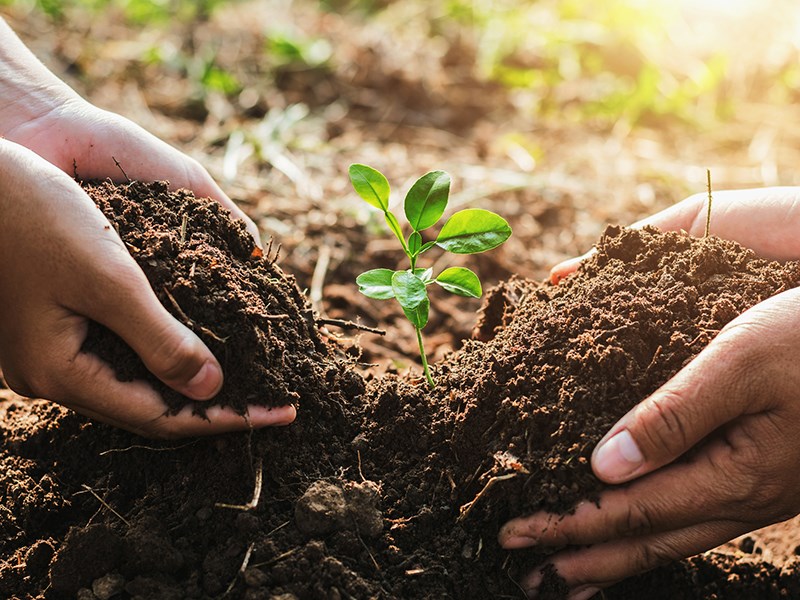Even if you look a lot like someone in your family, are a twin, or have a true dopplegänger out there, you’re your own person. Each one of us is unique and yet all, hopefully, are appreciated for our specific cosmic combination of form, character and story.
Once a member of our community departs, there is a vacancy – a missing piece to our puzzle. This is another testimony to the importance and truth of our individuality. We could even argue that in our diversity lies our strength. Differences in perspective, expression and understanding lead to spectacular art, medical breakthroughs and conflict resolution.
We seem wired to preserve variety, advocating for the protection of rainforests and members of the animal kingdom, too. But what about life that’s not as easy to witness?
If we knew just what was going on under our feet 24 hours a day in the factory of the soil, we could scarcely contain our wonder. In just one handful of earth, there are more microorganisms than there are people on the planet, by a long shot.
Far more than something to wipe off our feet when we come trudging in from the trails or garden, soil is alive. Bacteria and fungi work to break down organics into digestible forms, allowing plants to access minerals and vitamins. Even the bits that are inorganic play an important role; varying textures and minerals are provided by sand, clay and silt, for instance.
Soil is a living system and we are integrally connected with it. Much of our food chain starts its life in the soil, and any imbalances in it make their way to us. The delicate, if unseen, balance of life in the soil is upset by toxins such pesticides, herbicides and fungicides. Even over-fertilizing can create problems and result in run-off, leading to harmful algae blooms in waterways, choking out life.
There’s no getting around it, the circle of life is a real thing, and the health of the thin biolayer of the planet sustains all life on it. Healthy soil is dark, hosts insects and worms, holds and releases moisture as needed, is full of fungal mycelia, and is home to a wide range of microorganisms.
We can contribute to soil health, and ultimately our own, by taking care of its biodiversity. There are many roads to this end including backyard composting, supporting organic farming practices, growing food rather than lawns, avoiding tilling and planting trees, to name a few. Adding biochar (charcoal populated with helpful microorganism), using bokashi fermentation, top dressing gardens with seaweed, spreading fungal spores and spraying compost tea on plants all give a jump-start to the process of adding life back into dead soil.
Fun fact: your body is actually more bacteria than anything else, so it makes even more sense to protect one of the key sources of healthy bacteria.
Soil is the cornerstone to life. Feed it and we feed ourselves. Deprive it and we find ourselves in lack.
Let’s Talk Trash is qathet Regional District’s waste-reduction education program. For more information, email [email protected] or go to LetsTalkTrash.ca.



